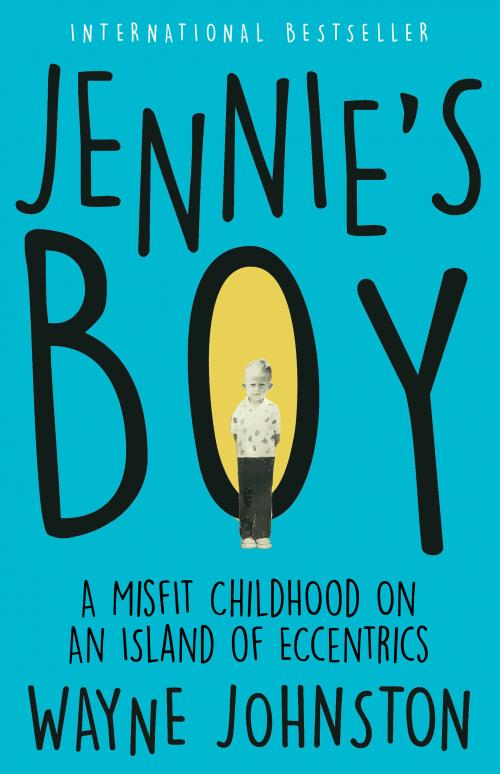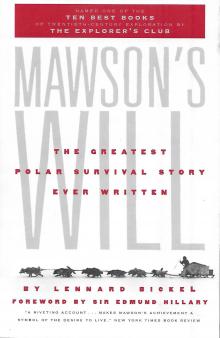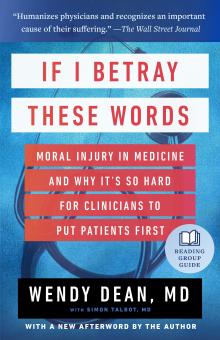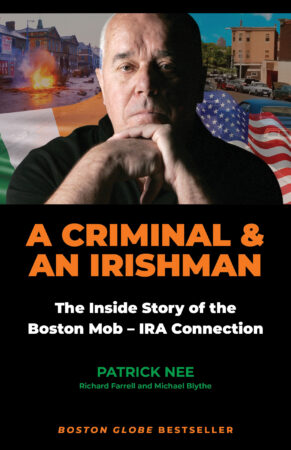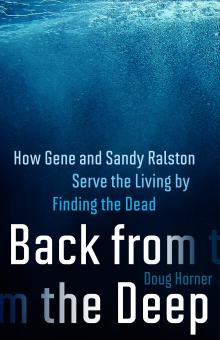Excerpt
Jennie and Dad worked in town where we had lived for a while, but we could not afford to live there anymore, so we were going back to where we came from with our tails between our legs.
My parents would have to go back to riding a yellow bus to work because two men had come and taken our car that, because of something Dad had done, we couldn’t afford anymore. The men had come in their own car, but one man got out and climbed into our car, and then they drove both cars off while the neighbours watched from the windows of the house across the street. A shameful sight that Jennie said no one would ever forget.
We were gathered in the kitchen just as we had gathered in many other kitchens before we’d had to leave a house for good because Dad had spent the rent. “I may as well tell you the truth straight out,” Jennie said, as if she had managed to keep the truth from us until now, but she’d be damned if she would gild the lily yet again for a man like Dad.
Dad had spent the rent in some bar that was close to where we lived. It was bad enough that he’d spent the rent, Jennie said, but to do it right under our noses was an all-time low. We’d barely been in St. John’s long enough to afford to get a phone installed and we’d have to pay for it for the next month, but we wouldn’t be there to hear it ring or use it to ring someone else. She hadn’t even memorized the number yet.
Dad said it was just a phone, not a family heirloom. But then he admitted he was guilty for what the rest of us would soon have to endure because of him. We might as well convict him in advance. He was no good and never had been and never would be, he insisted, and his wife deserved a better husband, and his four boys a better father. He insisted on it as if he saw more clearly than Jennie ever could the disappointment to her that he was. Dad continued to expound on his utter worthlessness, as if he was giving someone else the dressing down they long had coming to them until, at last, Jennie relented and told him he was being too hard on himself. Soon, they were both heaping contempt on some nebulous, sinister enemy who didn’t know a good man when they saw one, some universal agency of opposition that was forever thwarting the modest plans of decent men like Art Johnston.
Dad said he would be shamefully on display throughout the journey tomorrow from St. John’s back to the would-be hamlet we had abandoned just three months earlier. Our old neighbours would say that Art Johnston had found out the hard way that he was no better than anyone else in the place whose very name he so disliked that he refused to use it.
But then he went back to insisting that it was all his fault, and this time the four of us boys—Ken, Craig, me, and my little brother, Brian—joined Jennie in defending him from himself, contradicting him when he said we would never have a decent home as long as we were stuck with him.
“You’re being too hard on yourself, honey,” Jennie said, and the four of us said that she was right, that it wasn’t his fault that the world was full of bad men who took advantage of the good, that there was no lower you could go than to be a landlord who cared about nothing but the rent. A landlord was a man who lorded it over others.
Dad shifted sides again and told us of the landlords he had known, heartless men who turned families out on the street in the middle of winter. He had been under the thumb of dozens of them, he said, but never ceased to be amazed by their ruthlessness and trickery. But the day was coming, he promised us, a better day, when nothing we owned would be seized by landlords because we couldn’t pay the rent.
“That day might be just around the corner,” Jennie said, and we all nodded and huddled around Dad and told him you never knew when good times were coming, when your luck was bound to change. It wasn’t as if he had it easy. Raising four boys was hard enough, but when one of those boys was more trouble than the other three combined, it might as well be seven or eight that he was taking care of. He looked at me and I tried to smile.
“It’s not Wayne’s fault, either,” Dad said. If truth be told, it was only because of bad luck that the deck was stacked against us, not because of him and me. Soon the others were all conceding that it wasn’t my fault. It wasn’t his fault. It wasn’t the fault of his wife or the rest of his children. None of us could help how we were born.
Still, by this time, everyone was huddled around me and I was crying and promising to do my best with what I had. I couldn’t be blamed for all the things that were wrong with me, nor could Jennie, anymore than Jennie’s mother could be blamed for having a daughter who’d had a boy like me.
I was seven that November when we were tossed from our apartment in St John’s. I had lived in twenty houses by then. I don’t remember a lot of them, but most of them were scattered along a couple of roads in a place called the Goulds, about an hour away from town. It wasn’t much of a place, not even a village, but it was where Jennie was born and where her parents, Lucy and Ned, still lived, on Petty Harbour Road.
On that last night in town, Jennie said she remembered all the houses. She said she could give you directions to the bathroom in almost any house on Petty Harbor Road. It wasn’t much to brag about, but it was true.
We boys never knew when we were leaving or exactly where we were moving next, just that we were always one car breakdown or appliance repair away from having an eviction notice slipped beneath our door in the middle of the night by a landlord who, Dad said, was too gutless to look him in the eye.
“Too gutless,” Craig said.
“We don’t always have a car,” Dad said, “but we always have Wayne, and there’s no telling when he’ll have to be repaired.”
*
Repairing me seemed to be impossible because no one seemed to know why I was sick. A doctor I could not remember having been to see had once said I had a nervous cough. Jennie seemed to think I had a nervous cough because I was nervous all the time. She said she had heard of other people who had nervous coughs, but she never named them.
Calling it a nervous cough made it sound like I was constantly trying to clear my throat, but that wasn’t the case. The cough was so deep, so loud, and so relentless that each of my three brothers had tried to kill me to shut me up.
Once Ken had shoved a half-used bar of soap into my mouth when he was trying to get to sleep. Soon, though I was no longer coughing and Ken was drifting off, I was frothing soap bubbles. I don’t know which of my brothers alerted my parents but, when they saw me, they took me to be having a seizure. They were distressed but not especially surprised, as they had, by this time, all but reconciled themselves to the idea that I would not make it out of childhood. They called a nurse named Dot Chafe, who lived nearby. She had seen seizures before and knew I was not having one. Exploring my mouth with a pair of tweezers, she was able to remove what was left of the soap.
Another time, I was sharing the back seat of one of our family cars with Craig when the door swung open as my father turned to go up an especially steep hill. Craig pushed and kicked me from the car and watched through the back windshield as I tumbled down the hill until I was brought up against a mailbox, miraculously unhurt but for skinned knees and elbows. Craig said he’d done it not just to spare himself my endless hacking, but to see what me flying down the hill would look like.
And Brian once pinned me to the kitchen floor and jammed a plastic egg cup into my mouth so hard Dad couldn’t pry it loose. He had to crush it between his thumb and forefinger so that Jennie was able to pick the pieces from my mouth.
Sometimes Jennie spoke as if everything else that was wrong with me followed from my cough, but other times it seemed to be the other way around—I coughed because I had no appetite and was therefore sickly and had no energy, things you would think would incline me to sleep a lot and yet I almost never slept. Ever since I could remember, I had always been generally, vaguely, sick and, as far as anyone could tell, I always would be, for however long I could endure it.
No one ever spoke in front of me about how much long longer I would last, though when Dad set eyes on me after having been away for a couple of weeks inspecting fish plants along the coast, he often said, “Talk about beating the odds.” That I had survived, even to the degree I had, astonished him.
Jennie had several times come close to miscarrying me. When I was three, an emergency appendectomy had nearly done me in, as had a routine tonsillectomy when I was five, and several bouts of pneumonia. And there were all my chronic conditions—throwing up whatever I managed to get down, the nervous cough, the insomnia. A man in the Goulds named Luke Joyce had beaten the odds by being born the seventh son of a seventh son, and yet, Dad said, I had beaten greater odds by not having perished. It was Luke Joyce, not a doctor, that Jennie once called when I was sick to ask him to say a prayer on my behalf. She credited Luke with having saved me, even though the next time she called him, my condition got so much worse she never called him again.
When Dad criticized her for such superstitions, Jennie always countered that you only had to look at the number of people who died in hospitals to know that they were the last place a sick person should go. Dad told her that this was irrational—more people would die if not for hospitals, just as they did in the places around the Bay that had no hospitals. He’d seen with his own eyes the harm that superstition and lack of education could do.
Dad was proud of being an educated man. Born into a fishing family, he had left Newfoundland, earned a diploma in agriculture and come back and found a job as a lab technologist with, of all things, the federal department of fisheries, sometimes travelling the island with a small group of other men on a laboratory boat, testing the quality of fish processed in the fish plants in remote coastal settlements. He told us he had seen poverty and ignorance on a scale that would have made Dickens despair of doing justice to them with pen and paper.
He had once happened upon a woman who had had twenty-one children by Caesarean section. Jennie said that this woman sounded like a kangaroo from one of the rum dreams he was forever waking from. Dad swore that the woman had a scar on her belly that looked like a big zipper. Jennie mumbled something about the big zipper and the little zipper and asked him how he knew what her scar looked like. Dad said because she liked to show it off. It was the closest thing to a conversation piece the God-forsaken town would ever have.
Jennie said she bet the woman was a piece, all right, but doubted that what she was famous for inspiring was conversation. And she cited the case of a woman they both knew who went into hospital for a minor operation on one ear and came home deaf in both.
Dad became exasperated. Why would hospitals even exist if they did more harm than good? He didn’t know of anyone else who thought they did the very thing they were invented to prevent.
She said you only had to ask around to find out that more people agreed with her then agreed with him.
Yes, he said, because most people were ignorant, superstitious and uneducated, which was exactly what he had started out saying in the first place. Parts of the world would forever be backward until their people came to understand the value of scientific thought.
Jennie reminded him that he was not a scientist and he was not a doctor. All he did was work for the fisheries department. The next time she tripped over a sick fish, she’d be sure to bring it straight to him.

